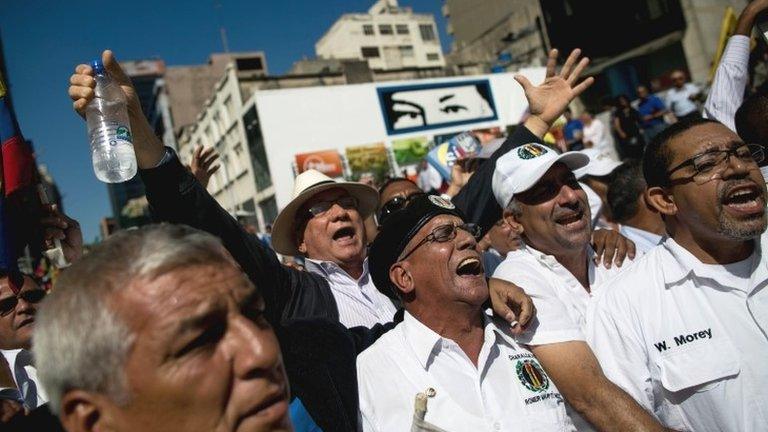Venezuela: Supreme court backtracks on powers bid
- Published
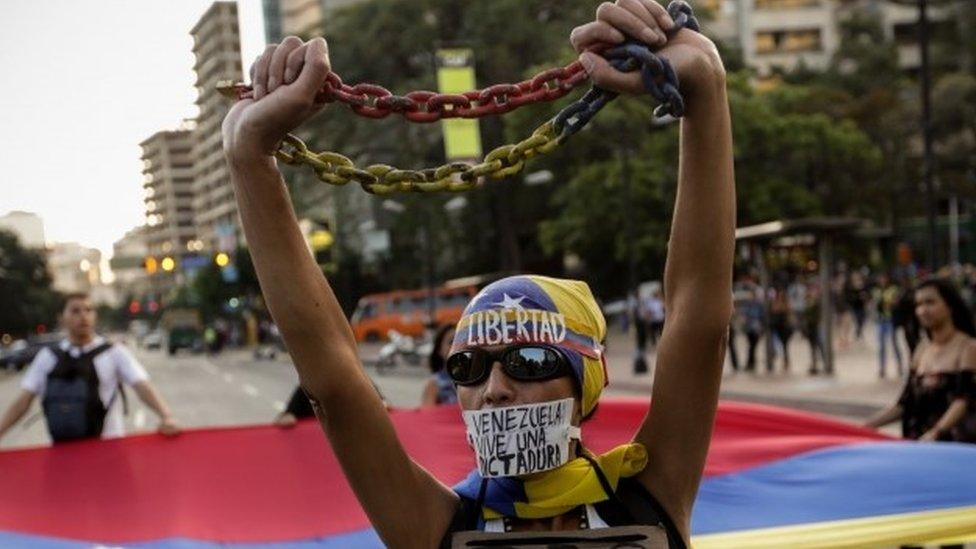
The court's original ruling had sparked new protests against the government
The Venezuelan Supreme Court has reversed its ruling to strip congress of its legislative powers.
It made the decision after the government of President Nicolas Maduro urged it to review the ruling "to maintain institutional stability".
The initial decision - announced on Wednesday - had been denounced as a "coup" by the opposition, which dominates the National Assembly.
Anti-government protesters have staged daily protests against the move.
The supreme court announced the reversal on its website.
A day earlier, chief prosecutor Luisa Ortega, an ally of President Nicolas Maduro, became the first high-ranking official to criticise the judges.
Speaking live on TV, she expressed "great concern" about a measure which, she said, violated the constitution.
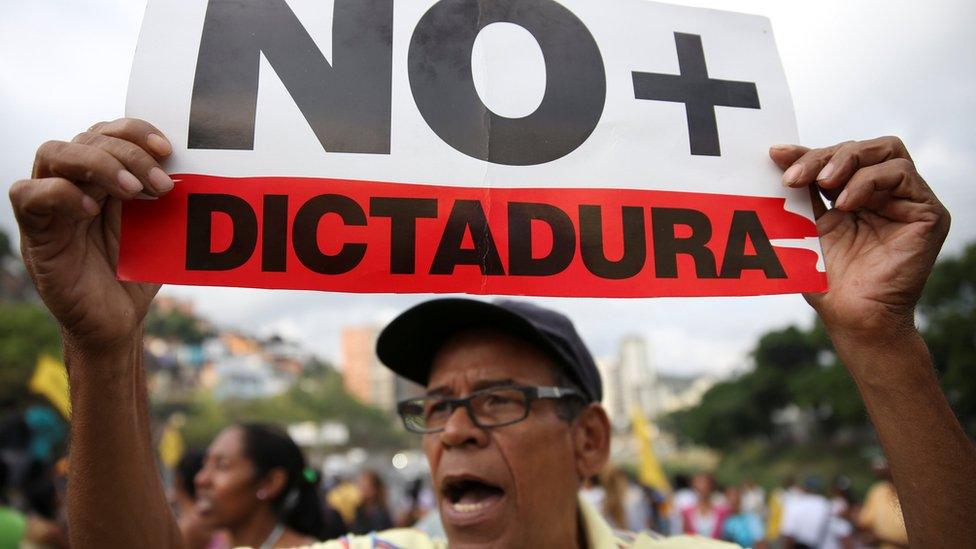
The opposition says Mr Maduro is turning Venezuela into a dictatorship
Promising dialogue to end the crisis, Mr Maduro had convened a late-night meeting of the state security council.
Afterwards Vice-President Tareck El Aissami said: "We urge the supreme court to review the decisions... in order to maintain institutional stability and the balance of powers."
Mr Maduro said: "This controversy has been overcome, showing the power of dialogue."
How did the dispute start?
In its original ruling, the supreme court had annulled the powers of the assembly, allowing the judges to write laws.
The court had accused lawmakers of "contempt" after allegations of irregularities by three opposition lawmakers during the 2015 elections.
The court has backed the leftist president in his ongoing struggles with the legislature. On Tuesday it removed parliamentary immunity from the assembly's members.
There has been widespread international condemnation, with the Organisation of American States talking of the "final blow to democracy" in Venezuela.

Why the reversal? By Will Grant, BBC News, Havana
It seems that a combination of internal and external pressures forced President Maduro's hand.
Inside Venezuela, the opposition's outcry was to be expected. However the sight of the normally loyal Attorney General, Luisa Ortega, openly criticising the move as unconstitutional was for many observers a turning point, and perhaps evidence of a wider split within "Chavismo".
Externally too, the response was very robust. Cuba, arguably Venezuela's staunchest ally, has been unwavering in its support. The Organization of American States held a special meeting in which other allies of Venezuela also lent their support to Mr Maduro. However, Colombia, Mexico, Argentina, Brazil and others called for cooler heads to prevail and for a return to the democratic order.
In the end, it seems President Maduro may have decided that the supreme court's move was a step too far politically and hoped to avoid a repeat of the massive street protests which have led to violence in the past.
Perhaps even the election this weekend in Ecuador played a role. The race in the Andean nation is very tight and it can't have helped President Rafael Correa, as a close friend to Venezuela, to have to support a move that was being billed by some as a "self-coup" in the days before a presidential election.

Tensions have been high in Venezuela because the country has been engulfed in a severe economic crisis.
It has the world's highest inflation rate, which the International Monetary Fund predicts could reach 1,660% next year. Long queues, power cuts and shortages of basic goods are common.
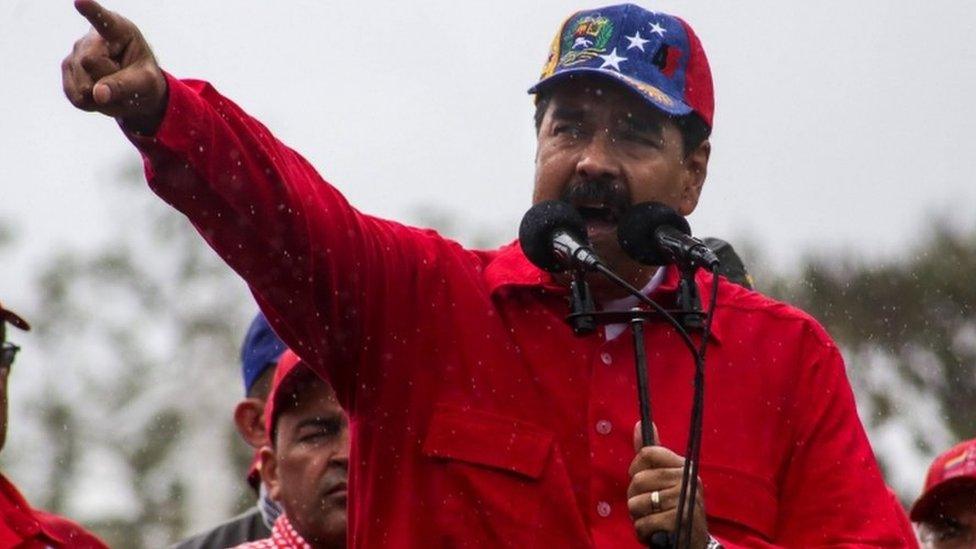
Mr Maduro blames the difficulties on an "economic war" waged by his rivals
The government and opposition blame each other for the country's problems, made worse by the falling price of oil, Venezuela's main export product.
President Maduro has become increasingly unpopular and the opposition has called for his removal.
Correction 25 April 2017: This article has been amended to clarify that the OAS held a special, rather than an emergency, meeting and that Cuba's support was unrelated to that meeting.
- Published1 April 2017
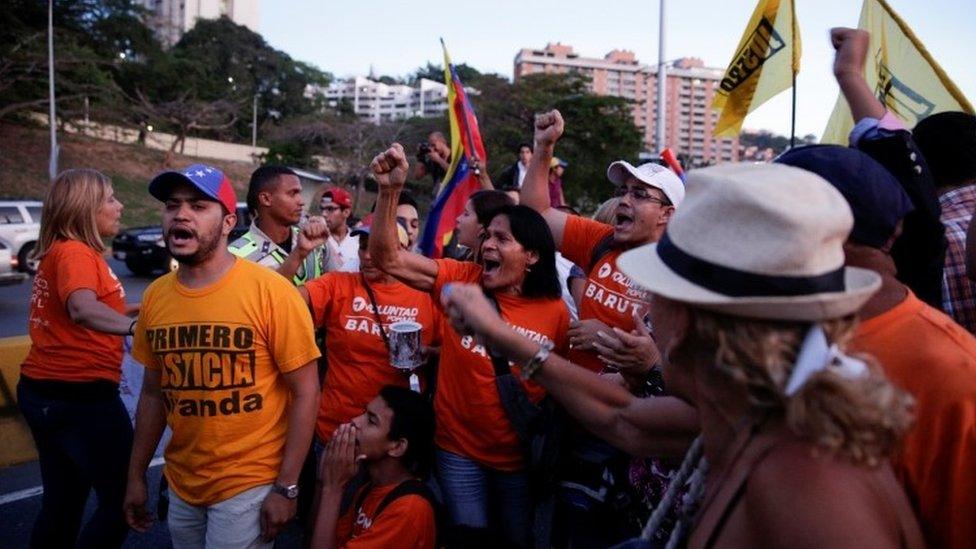
- Published31 March 2017
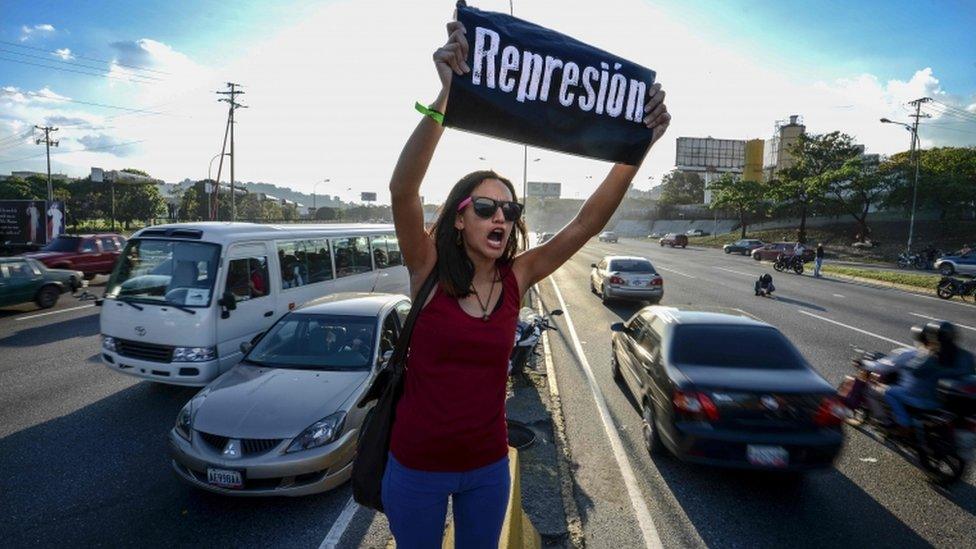
- Published25 March 2017

- Published5 January 2016
